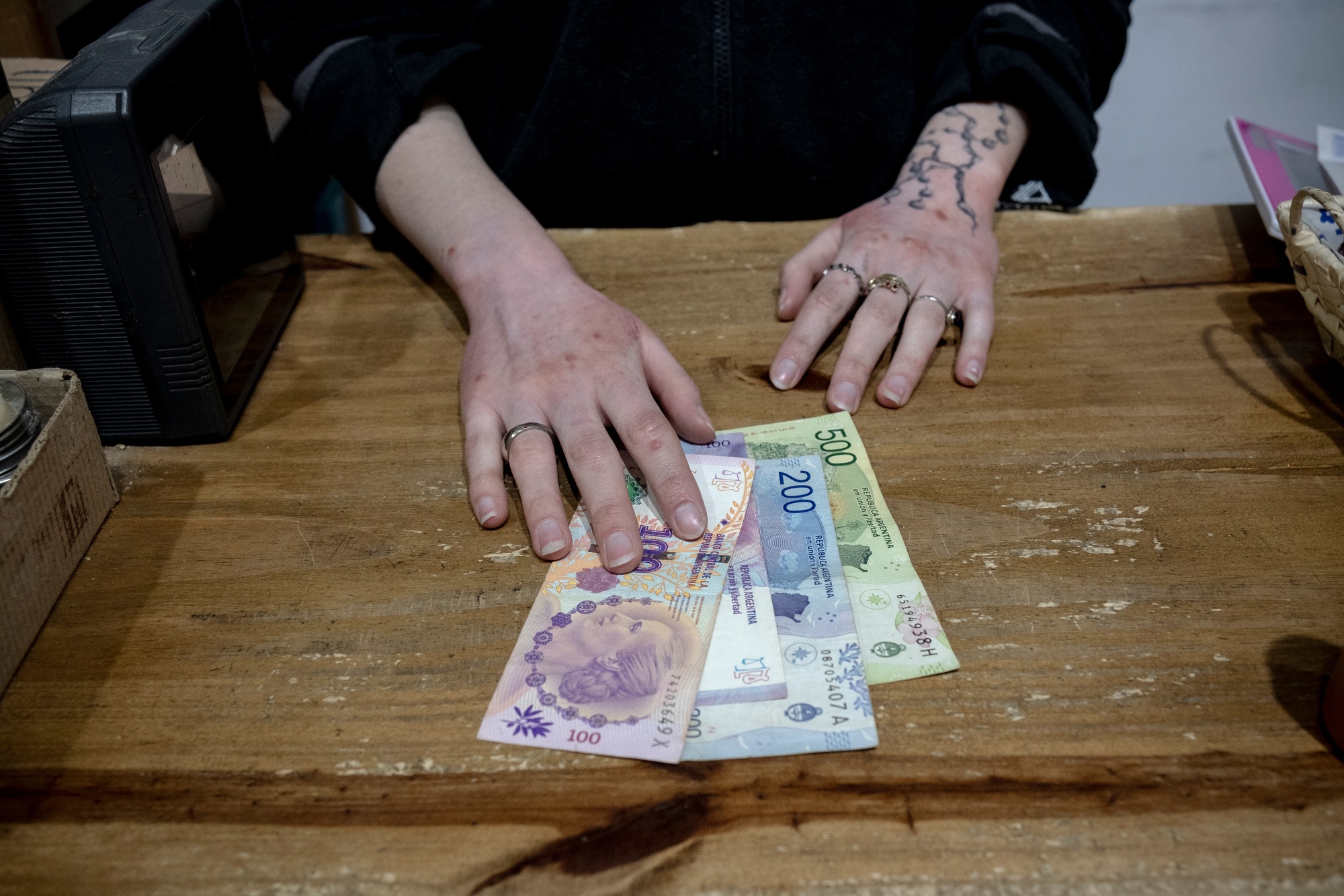Argentina Devalues Peso's Value By 54% In Economic Shock Plan
Explore the latest news on Argentina's economy as it takes a bold step. Argentina devalues peso's value by 54% in economic shock plan. Discover the implications of this significant monetary policy change and its impact on both the local and global economic landscape.
Author:Suleman ShahReviewer:Han JuDec 14, 202390.6K Shares1.3M Views

In a bold move to address the ongoing economic crisis, Argentina devalues peso's value by 54%. Argentina's Economy Minister Luis Caputo announced a significant devaluation of the peso, reducing its value by over 50% as part of comprehensive emergency measures. This dramatic decision was made public on Tuesday, indicating a shift in the country's financial strategy under President Javier Milei's new administration.
A Radical Shift In Economic Policy
The devaluation changes the peso's official exchange rate from 365 to 800 pesos per dollar, marking a significant deviation from previous policies. This comes just days after President Milei, known for his anarcho-capitalist views and dramatic campaign promises, assumed office.
Luis Caputo, speaking on the matter, said, "There is no money," emphasizing the gravity of Argentina's fiscal situation. The new government is implementing several austerity measures, including cuts to public works and subsidies in energy and transportation. Caputo candidly stated, "For a few months we’ll be worse off, particularly with inflation."
IMF Supports Argentina's New Initiatives
The International Monetary Fund (IMF) expressed support for these measures. Julie Kozack, IMF's Director of Communications, said in a press release, "IMF staff welcome the measures announced earlier today by Argentina’s new Economy Minister, Luis Caputo. These bold initial actions aim to significantly improve public finances in a manner that protects the most vulnerable in society and strengthen the foreign exchange regime."
Challenges And Implications
The peso devaluation is part of a broader plan to stabilize Argentina's economy. Hyperinflation has been a major issue, with the central bank raising its benchmark interest rate to 133% in October. These measures aim to address the inflationary spiral caused partly by excessive printing of the peso.
The new fiscal policy includes spending cuts equivalent to 2.9% of GDP, targeting energy and transport subsidies, and social security. These reductions are expected to generate significant savings, with the government also planning to halt the indexation of pension payments.
Caputo's approach signifies a departure from previous strategies, focusing on solving the "addiction" to fiscal deficits. The finance ministry anticipates a 2.2% increase in tax revenue next year. Additionally, the number of ministries will be halved, and transfers to provinces will be reduced.
The Road Ahead
Despite the initial shock, these steps are seen as necessary for long-term economic stability. The devaluation was anticipated by markets, with predictions of a significant currency drop following Milei's election victory.
Argentina's strategy to combat its economic woes includes restructuring its currency system and implementing fiscal discipline. This approach reflects a recognition of the need for deep structural changes to address the root causes of the economic crisis.
President Milei, in his inauguration speech, warned of the tough times ahead but remained committed to rebuilding Argentina's economy.
President Milei promising a future shaped by freedom and drastic reforms, stated:
“„I want you to be aware that we are going to begin the reconstruction of Argentina after more than a hundred years of decline.- President Milei
The government's move to devalue the peso and implement strict austerity measures marks a significant shift in Argentina's economic policy. These steps, while challenging in the short term, are aimed at stabilizing the economy and setting the stage for sustainable growth. As Argentina navigates these changes, the world watches to see how these bold actions will reshape the nation's economic landscape.

Suleman Shah
Author
Suleman Shah is a researcher and freelance writer. As a researcher, he has worked with MNS University of Agriculture, Multan (Pakistan) and Texas A & M University (USA). He regularly writes science articles and blogs for science news website immersse.com and open access publishers OA Publishing London and Scientific Times. He loves to keep himself updated on scientific developments and convert these developments into everyday language to update the readers about the developments in the scientific era. His primary research focus is Plant sciences, and he contributed to this field by publishing his research in scientific journals and presenting his work at many Conferences.
Shah graduated from the University of Agriculture Faisalabad (Pakistan) and started his professional carrier with Jaffer Agro Services and later with the Agriculture Department of the Government of Pakistan. His research interest compelled and attracted him to proceed with his carrier in Plant sciences research. So, he started his Ph.D. in Soil Science at MNS University of Agriculture Multan (Pakistan). Later, he started working as a visiting scholar with Texas A&M University (USA).
Shah’s experience with big Open Excess publishers like Springers, Frontiers, MDPI, etc., testified to his belief in Open Access as a barrier-removing mechanism between researchers and the readers of their research. Shah believes that Open Access is revolutionizing the publication process and benefitting research in all fields.

Han Ju
Reviewer
Hello! I'm Han Ju, the heart behind World Wide Journals. My life is a unique tapestry woven from the threads of news, spirituality, and science, enriched by melodies from my guitar. Raised amidst tales of the ancient and the arcane, I developed a keen eye for the stories that truly matter. Through my work, I seek to bridge the seen with the unseen, marrying the rigor of science with the depth of spirituality.
Each article at World Wide Journals is a piece of this ongoing quest, blending analysis with personal reflection. Whether exploring quantum frontiers or strumming chords under the stars, my aim is to inspire and provoke thought, inviting you into a world where every discovery is a note in the grand symphony of existence.
Welcome aboard this journey of insight and exploration, where curiosity leads and music guides.
Latest Articles
Popular Articles